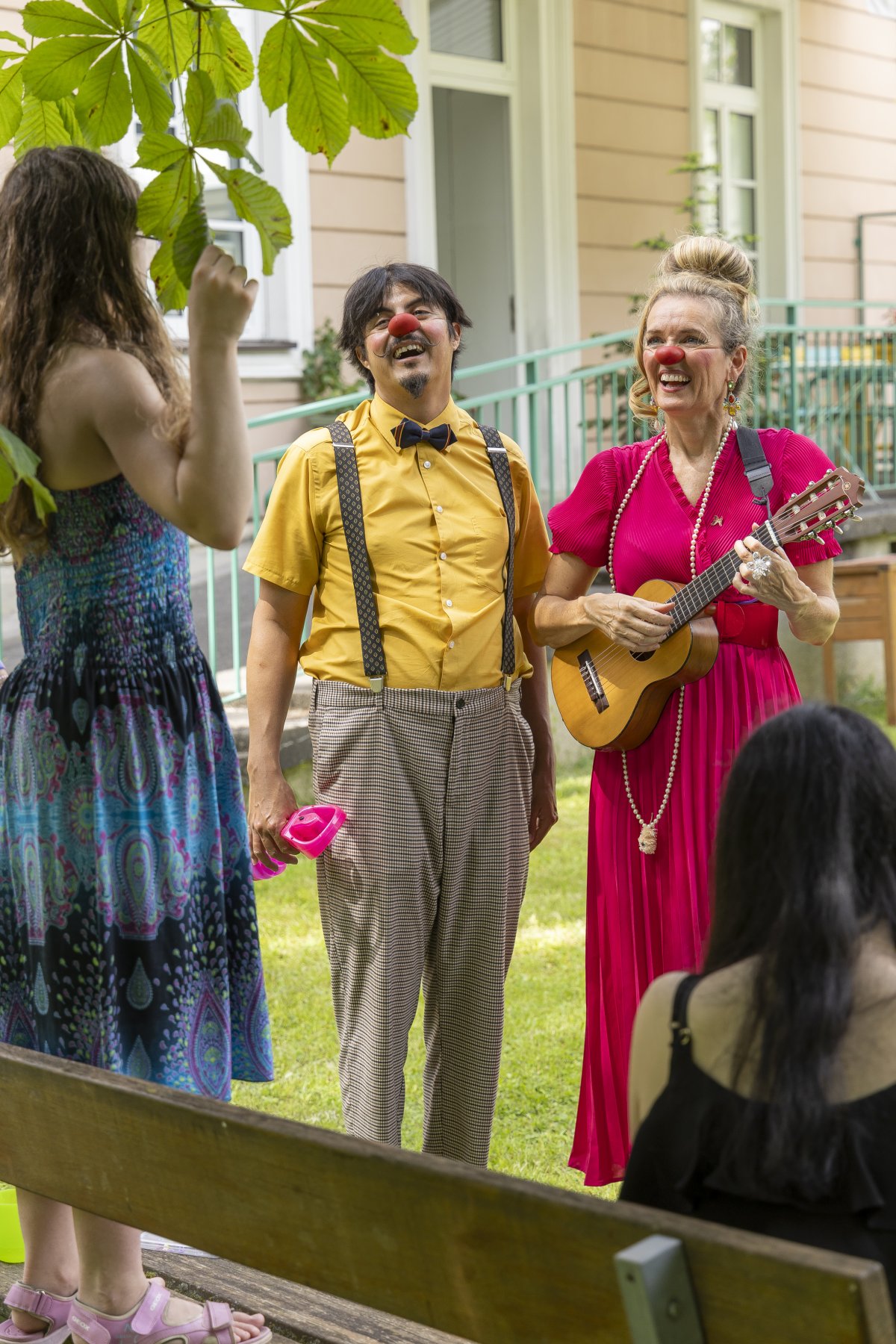RED NOSES Austria and the Department of Clinical and Health Psychology of the University of Vienna collaborated on a research project over healthcare clowning, published in the scientific journal Frontiers in Psychiatry.
During four weeks, 29 children and adolescents, aged 7 to 17, participated in regular clown visits in a psychiatric ward. Psychological and physiological stress markers were assessed by the researchers, before and after each clown session.
Participants reported lower stress and higher energy levels, consistently, after each clown visit. Stress-indicative cortisol levels trended downward, suggesting potential physiological benefits, yet with no statistically significant changes.
The 21 healthcare professionals participating reported that “clown visits had a positive impact on patients’ and their own well-being, but their evaluations regarding their stress levels and work processes on the ward were mixed”.
The findings of the report “provide preliminary evidence that the stress-reducing and energizing effects of clown visits, which previous studies have demonstrated in various paediatric settings, can also be transferred to the field of inpatient child and adolescent psychiatry”.
The authors recommend that “improvements in the implementation of clown visits could help eliminate disruptive elements of this intervention”.
RED NOSES announced the results as encouraging. They stated: “As we move forward, we aim to strengthen collaboration with medical professionals to ensure that clown visits are both joyful and seamlessly integrated into the care environment, to maximise the positive impact for everyone involved”.
Find out more here
Image © ROTE NASEN Österreich.








